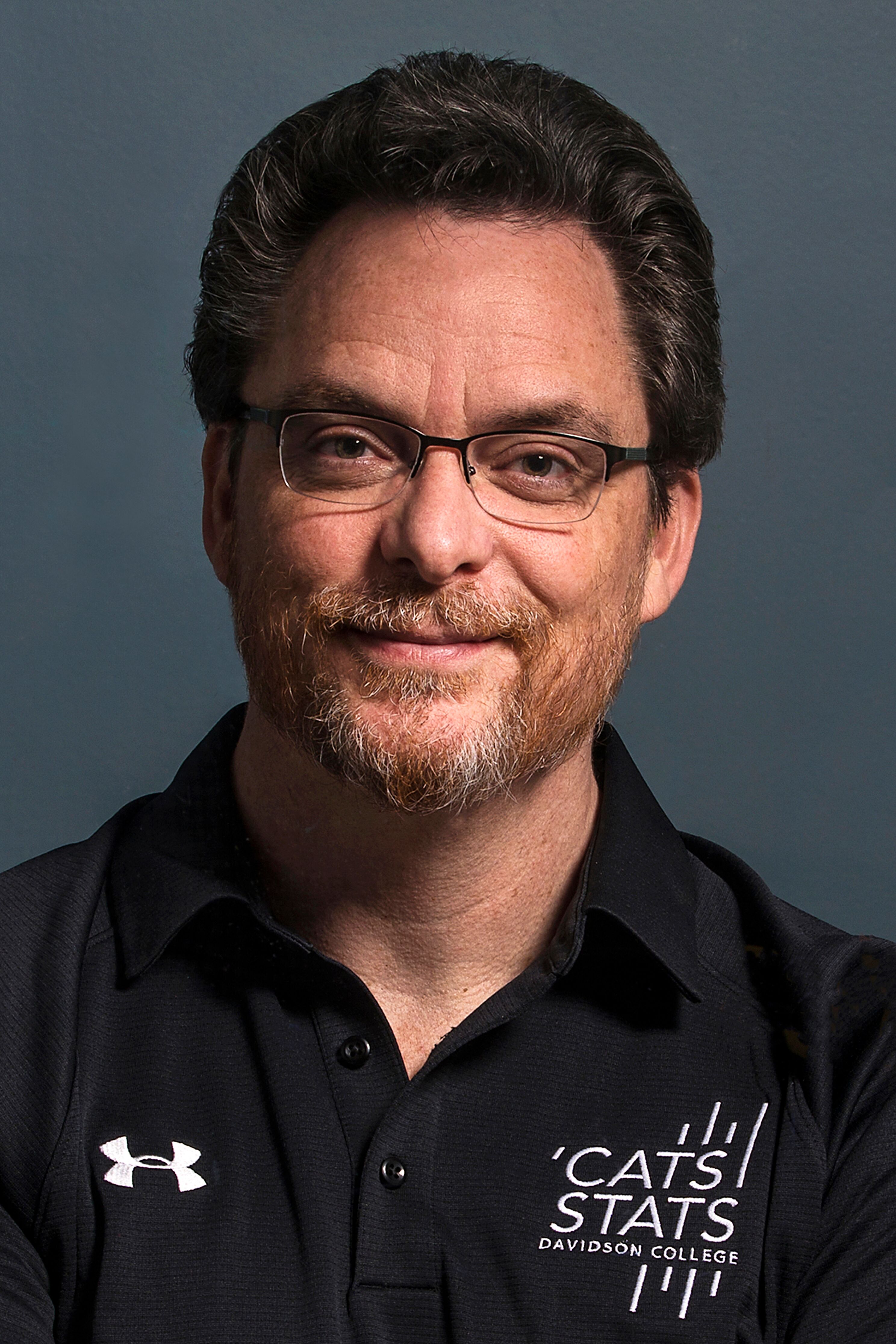Register
Online Registration with payment by credit card is now open (priority deadline: 12noon Thurs Sept 26th. Last day to register online: 5 pm, Mon Sept 30th 2pm Wed Oct 2).
Fall 2019 SoCal-Nev Section Meeting
University of Nevada Las Vegas
Saturday, October 5 and Sunday October 6, 2019
(Directions and Map)
Tentative Program
- 11:30-3:30 Registration
Outside of CBC A106 (auditorium) - 12:30-12:40 Welcoming Remarks
- 12:40-1:40 Invited Address by Matt Baker, Georgia Tech
The Algebra of Forgetfulness
CBC A106 Auditorium - 1:40-1:50 Section Business Meeting
CBC A106 Auditorium
Presentation by section governor/representative Edray Goins, Pomona College
- 2:00-3:00 Invited Address by Tim Chartier, Davidson College
Get in the Game!
CBC A106 Auditorium - 3:00-3:30 Afternoon Break/Refreshments
Foyer of CBC A106 - 3:30-4:30 Panel Discussion on Co-requisite courses, moderated by Shanna Dobson, CSU Los Angeles
Panelists include:
- Matt Jones, CSU Dominguez Hills
- Bob Prior, Norco College
- Katherine Stevenson, CSU Northridge
- 4:30-6:00: Section NExT Workshop by Elizabeth Thoren, Pepperdine University
Orchestrating Productive Mathematical Discussion Workshop
Location TBA - 4:40-6:05 Contributed Paper Session
View Paper Abstracts and times
HOS, Rooms TBA
Organized by Shanna Dobson, CSU Los Angeles - 6:15-6:45 The three M's: Mathematics, Mime, Magic
To finish the day in Las Vegas Style, plenary speakers Matt Baker and Tim Chartier display their world-renowned skills at magic and mime.
- 8:30-11:00 Registration
Foyer of CBC A106 - 9:00-10:30 Contributed Paper Session
View Paper Abstracts and times
HOS, Rooms TBA
Organized by Shanna Dobson, CSULA - 10:30-10:45 Morning Break/Refreshments
Foyer of CBC A106 - 10:45-11:45 Invited Address by Katherine Stevenson, CSU Northridge
Dramatic Shifts in California K16 Math Education
CBC A106 Auditorium - 11:45-12:45 Invited Address by Lisette de Pillis, Harvey Mudd Collge
Creating the Creators - Research Experiences in Mathematical Biology
CBC A106 Auditorium - 12:45-1:00 Closing Remarks by section chair, Edouard Tchertchian,
Pierce College
CBC A106 Auditorium
Directions and Maps
The meeting will take place in the Carol C Harter Classroom Building Complex (#58 on map) with the paper sessions in the Hospitality Hall (#59). (see the printable Campus Map or their interactive campus map). Visit UNLV's Visit Campus page for directions and maps of campus.
Parking
Parking at UNLV does not require a permit on the weekend starting at 1pm on Fridays. The Black Lot is the closest to the meeting space.
Hotel
The following hotels are close to the UNLV campus.
HYATT PLACE LAS VEGAS
4520 Paradise Road, Las Vegas, Nevada 89169
Embassy Suites - Las Vegas
4315 Swenson Street, Las Vegas, NV 89119
Four Points by Sheraton Las Vegas East Flamingo
4055 Palos Verdes Street, Las Vegas, NV 89119
Extended Stay America - Las Vegas - East Flamingo
GuestRelations@ExtendedStay.com
Tel: 1.800.EXT.STAY (1.800.398.7829)
Red Roof Inn Las Vegas
4350 Paradise Rd., Las Vegas, NV 89169
PHONE: 937-328-1766
Register
Online Registration with payment by credit card is now open (priority deadline: 12noon Thurs Sept 26th. Last day to register online: 5 pm, Mon Sept 30th Wed Oct 2).
Registration Fees
| Registration | |
| Nonmember | $60 |
| MAA Member | $55 |
| Student | $15 |
| On-site registration (cash or check only) will be available for the meeting, but will be $5 more than the pre-registration charge. | |
Register on-line
Register on-line through Eventbrite and pay by credit card (priority deadline 12noon Thursday Sept 26th, last date to register online is Mon Sept 30th Wed Oct 2). If you need to cancel your registration, please follow the proceedures in Eventbrite. There will be a non-refundable $5 service fee to cover the eventbrite fees for cancelations.
Questions about registration? Contact Karrolyne Fogel, kfogel at callutheran.edu
Matt BakerGeorgia Tech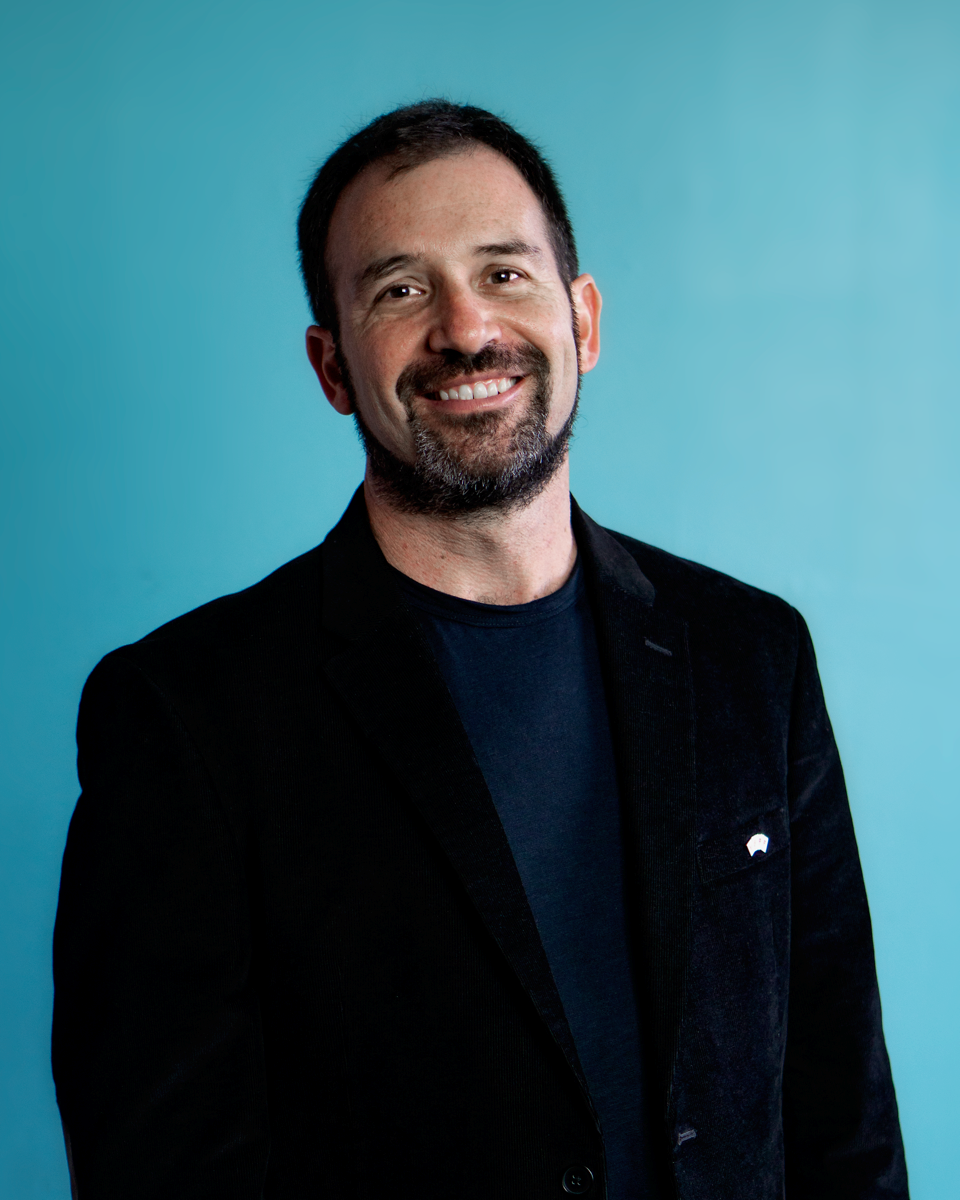 |
Matt Baker received his Ph.D. in Mathematics from UC Berkeley in 1999 and was promoted to Full Professor at Georgia Tech in 2011. He has authored over 40 research papers as well as an AMS research monograph, writes a popular mathematics blog, and is a Fellow of the American Mathematical Society. In 2017 Matt was awarded a Simons Fellowship in Mathematics. Matt’s enthusiasm for teaching has won him numerous awards, including a Georgia Tech CETL/BP Junior Faculty Teaching Award and the University System of Georgia Board of Regents Teaching Excellence Award. Matt currently serves as the Associate Dean for Faculty Affairs in the Georgia Tech College of Sciences. He is also the 2019-2020 MAA Southeastern Section Lecturer. |
The Algebra of Forgetfulness
There are a several theorems in algebra where one purposely forgets certain information about the coefficients of a polynomial and then sees whether certain properties of the roots can still be determined. A prototypical example is Descartes’ Rule of Signs, where we forget everything about a polynomial P except for the signs of its coefficients and then ask for information about the signs of the real roots of P. I will explain a novel algebraic framework for systematically understanding results of this type. This is joint work with Oliver Lorscheid.
Tim ChartierDavidson College
|
Tim Chartier is a professor of mathematics and computer science who specializes in data analytics. He consults with ESPN, the New York Times, the US Olympic Committee and teams in the NBA, NFL and NASCAR. Tim also oversees 70 student researchers who supply analytics to Davidson College sports teams. Beyond authoring books such as When Life Is Linear: From Computer Graphics to Bracketology and Math Bytes: Google Bombs, Chocolate-Covered Pi, and Other Cool Bits in Computing, Tim has worked on Google and Pixar educational initiatives. He’s served as Vice President of the MAA and is currently the section representative to the Congress of the MAA for the Southeastern Section. In February, Tim will begin his term as chair of the Congress of the MAA. Tim's authorship, research, and scholarship have been recognized with an Alfred P. Sloan Research Fellowship, and the Mathematical Association of America's Henry L. Alder Award, Daniel Solow Author’s Award, and Beckenback Book Award. |
Get in the Game!
Sports analytics has gathered tremendous momentum as one of the most dynamic fields. Diving deep into the numbers of sports can be game changing or simply a fun exercise for fans. How do you get in the game with numbers? What questions can be explored? What actionable insights can be gleaned? From March Madness to national media broadcasts, analytics are becoming increasingly indispensable. Dr. Tim Chartier will discuss outlooks that help with successful analytics, and the variety of questions that can be tackled. He will also share how he leads students to dig into sports using math and computer science, and their great success across the NBA, NFL, NASCAR, ESPN and the Davidson College teams. Learn how to get in the game — as a sports analyst!
Lisette de PillisHarvey Mudd College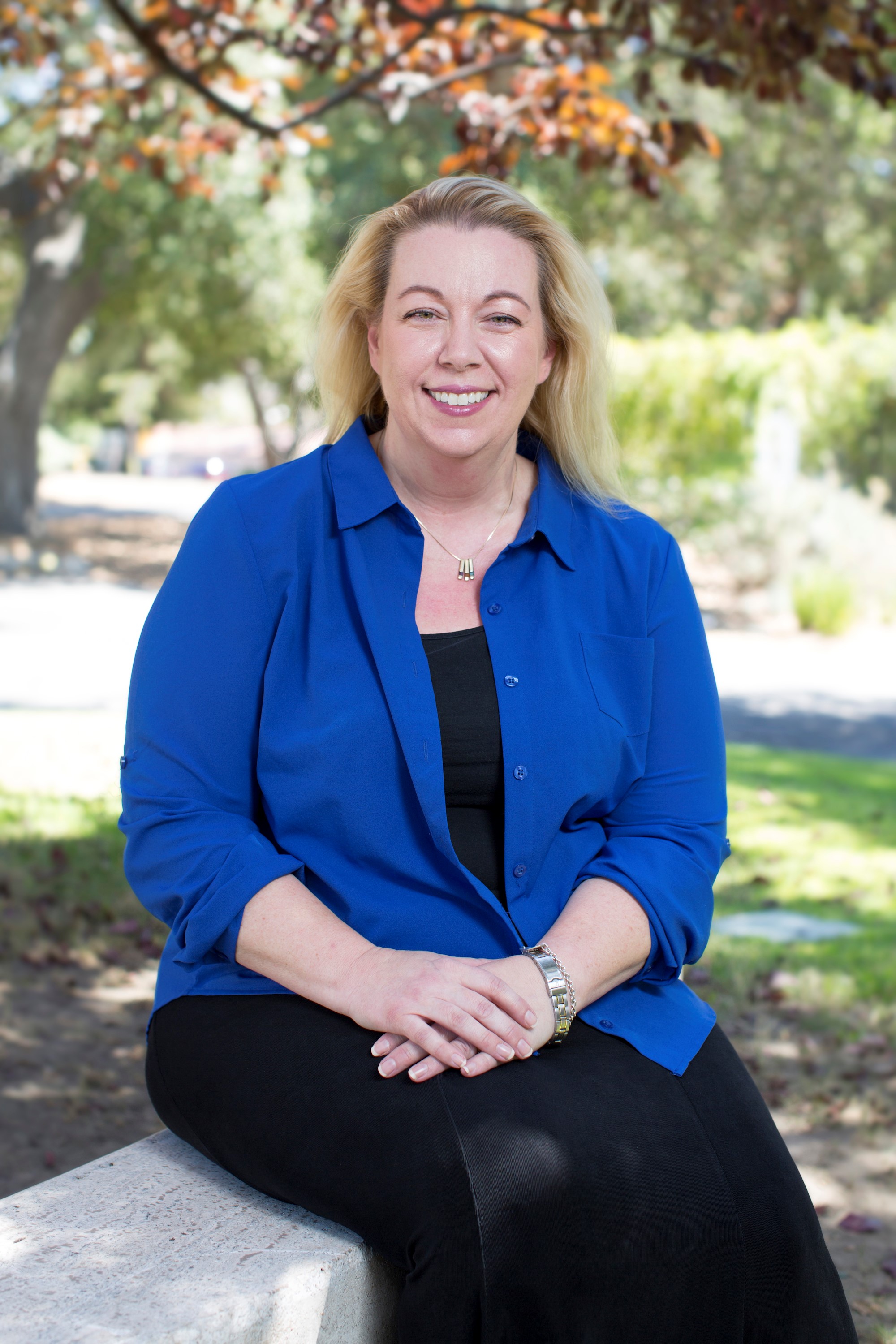 Photo courtesy of Harvey Mudd College. |
Dr. Lisette de Pillis is the Norman F. Sprague Jr. Professor of Life Sciences and a Professor of Mathematics in the Department of Mathematics at Harvey Mudd College. She received her PhD in mathematics from the University of California Los Angeles. Lisette was Director of the Harvey Mudd College Global Clinic Program prior to being elected department chair, and served as chair from 2014 through 2019. Lisette has been recognized for her multidisciplinary research excellence with the Maria Goeppert-Mayer Distinguished Scholar Award from the Argonne National Laboratory. She is also a HERS-CBL Clare Boothe Luce Leadership in STEM Scholar and a Fellow of the American Mathematical Society. Courtesy of People Behind the Science |
Creating the Creators - Research Experiences in Mathematical Biology
We must prepare the next generation of scientists to bring new energy and creativity to solving emerging scientific and medical challenges. In this talk, we will present a sampling of mathematical research projects focused on modeling systems motivated by questions in human health, particularly immune-system connected illnesses, such as cancer and type 1 diabetes. The projects presented have engaged students at all levels, from model creation to solution implementation. Our hope is to contribute in some way to inspiring the next generation of researchers and creative problem solvers.
Matt JonesCSU Dominguez Hills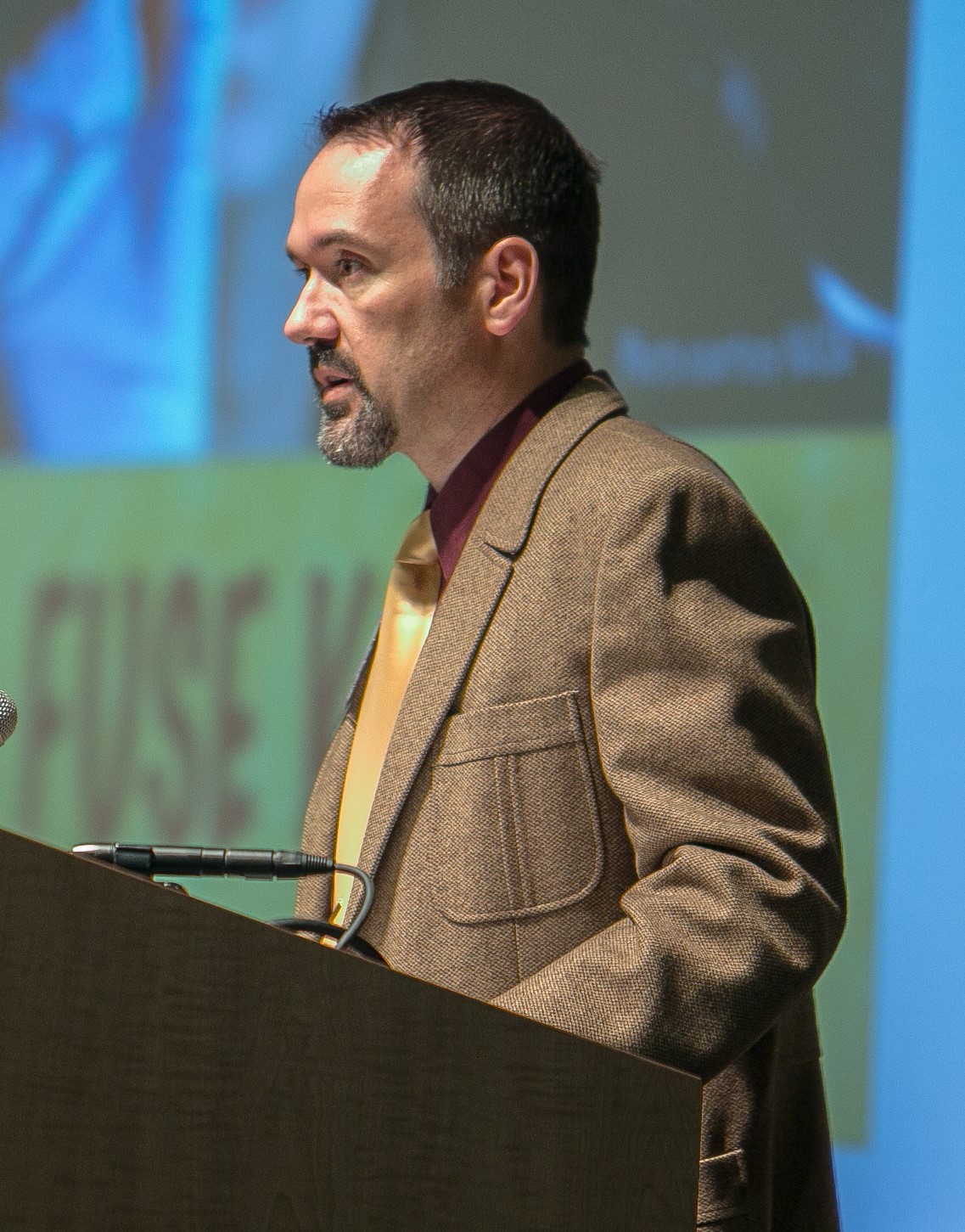 |
Matthew G. Jones is Mathematics Department Chair and Associate Director of the Center for Innovation in STEM Education (CISE) at CSUDH. He has taught more than twenty different classes at the undergraduate and graduate levels using Inquiry-Based Learning. His research is in mathematics education and in inquiry-based learning, and he has led workshops for more than 200 teachers and more than 150 college instructors. He has 14 peer-reviewed journal publications, and he is or has been PI or Co-PI on grants totaling over $5 million. He also finds time to enjoy the company of his wife and two daughters. |
Matt Jones is a panelist for the Co-curricular Courses Panel
The placement of students into transfer-level mathematics classes has been the topic of interest for higher education systems and has resulted in fundamental policy changes from state legislatures, such as Executive Order 1110 at the California State Universities and AB 705 at California community colleges. These policy changes are intended to increase equitable access and success in mathematics course work. Come join the discussion of co-curricular courses, one of the approaches to address these policy changes.
Bob PriorNorco College
|
Bob Prior is math professor and department chair at Norco College—in the Riverside Community College District—and the author of textbooks for trigonometry and developmental math. This past year, Bob led a team of RCCD math faculty through the five stages of AB 705 grief—shock, denial, anger, depression, and acceptance—to the five stages of reality—do we hafta, yes we hafta, buy-in, commitment, and ownership—and ultimately to an overwhelming urge to help someone ... anyone! Bob brings nearly 40 years of teaching experience to today’s conversation. |
Bob Prior is a panelist for the Co-curricular Courses Panel
The placement of students into transfer-level mathematics classes has been the topic of interest for higher education systems and has resulted in fundamental policy changes from state legislatures, such as Executive Order 1110 at the California State Universities and AB 705 at California community colleges. These policy changes are intended to increase equitable access and success in mathematics course work. Come join the discussion of co-curricular courses, one of the approaches to address these policy changes.
Katherine StevensonCSU Northridge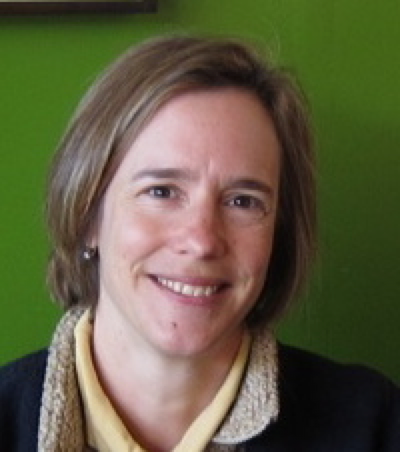 |
Katherine Stevenson is a professor of Mathematics at California State University, Northridge (CSUN) where she has taught since 2001. She earned her B.S. from Mount Holyoke College in 1989 and her Ph.D. from The University of Pennsylvania in 1994. Her research interests focus on Algebraic Geometry, particularly inverse Galois problems for curves. |
Dramatic Shifts in California K16 Math Education
Over the last two years, California’s public education institutions experienced dramatic shifts in policies regarding mathematics preparation and placement. These changes seek to streamline pathways from high school to college. Some elements of the new policies grew out of grassroots, faculty-driven movements. However, the ultimate directives were made in response to legislative action, or threats thereof. This reflects a national trend in which state legislatures are taking an interest in how their education dollars are spent and with what impact. The changes also reflect the fact that in many colleges and universities new computational and quantitative majors, minors, specializations, and certificates are flourishing both inside and outside mathematics departments. These call into question traditional math requirements.We will review recent and proposed changes in policies related to math and quantitative reasoning enacted by the administrative offices of the California Community College System and the California State University System. Together these institutions serve almost 2.6 million students from diverse ethnic and economic backgrounds. Thus changes to admissions and general education requirements impact the fabric of our society. We will discuss the challenges faced in implementing these fast paced changes as well as faculty lead efforts to create authentic collaboration between high school, college and university faculty and staff. We will analyze these against central goal – ensuring effective and equitable math/QR pathways to and through college that maintain the opportunity inherently promised by a Bachelor’s degree.
Katherine Stevenson is a panelist for the Co-curricular Courses Panel
The placement of students into transfer-level mathematics classes has been the topic of interest for higher education systems and has resulted in fundamental policy changes from state legislatures, such as Executive Order 1110 at the California State Universities and AB 705 at California community colleges. These policy changes are intended to increase equitable access and success in mathematics course work. Come join the discussion of co-curricular courses, one of the approaches to address these policy changes.
Elizabeth ThorenPepperdine University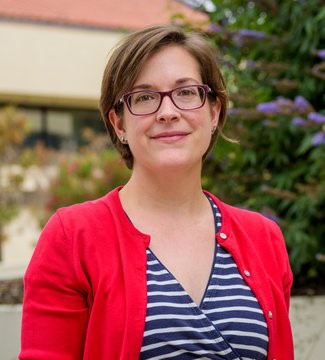 |
.Elizabeth Thoren first became involved with IBL teaching as a graduate student teaching assistant at the University of Texas at Austin. After earning a PhD in 2009, she spent six years at University of California, Santa Barbara as part of their Center for Inquiry and has been teaching at Pepperdine University since 2015. She has taught a spectrum of lower division courses using IBL, from honors courses geared towards first-year math majors, to general education courses for non-STEM majors, and foundational courses for future elementary teachers. Elizabeth has served as a Workshop Leader with the Academy of Inquiry Based Learned since 2017, as well as a guest Associate Editor for the PRIMUS special issue on Teaching Inquiry. |
Orchestrating Productive Mathematical Discussion
Inquiry-based learning classrooms depend on productive whole-class discussions. We want all students in our classrooms to have a voice and to engage with each other's ideas in ways that move the mathematics forward. To make this happen, we must think carefully about structuring and facilitating classroom discussions. In this interactive session we will introduce, model, and discuss some frameworks for orchestrating productive mathematical discussion.Call for Contributed Papers
You are invited to submit abstracts for the Contributed Paper Session of the Fall 2019 Section Meeting of the MAA, taking place on Saturday October 5 to October 6, 2019 at University of Nevada in Las Vegas. The talks will each be 15 minutes with a 5-minute question and transition period.
These sessions accept contributions in all areas of mathematics, including research and pedagogy, and all complete proposals will be considered. In particular, there will be two special sessions on "Active learning in undergraduate mathematics" and on "Arithmetic geometry." The selection of talks will be based on interest to the expected audience, on common themes with other submissions, and on scheduling constraints.
Applications to present in the contributed paper session are submitted online and were due by 11:59pm on Wednesday September 18, 2019. Applications include submitting an abstract (max 180 words) preferably using the specified LaTex template given in the example below (downloadable tex file of sample, compiled pdf version of sample). Only the items between \begin{document} and \end{document} need to be submitted.
\documentclass{article}
\newcommand{\presenter}[1]{\par\textbf{Presenter(s):}\ #1}
\newcommand{\others}[1]{\par\textbf{Other Author(s):}\ #1}
\renewcommand{\title}[1]{\par\textbf{Title:}\ #1}
\renewcommand{\abstract}[1]{\par\textbf{Abstract:}\ #1}
\newcommand{\theme}[1]{\par\textbf{Talk theme(s):}\ #1}
\newcommand{\audience}[1]{\par\textbf{Audience:}\ #1}\begin{document}
\presenter{Robben Teuffel and Robert Aroutiounian, CSU Channel Islands}
\others{Research advisor: Dr. Kathryn Leonard, CSU Channel Islands} %if applicable
\title{Skeletal Shape Modeling of the Corpus Callosum: Geometry-Based Classification for Automated Schizophrenia Diagnosis}
\abstract{Diagnosing schizophrenia is currently a process of trained symptom observation and individual interpretation by doctors. The objective of this research project is to automate diagnosis by using machine learning algorithms to categorize MRI-scanned brain images as healthy or schizophrenic based entirely on shape information of the corpus callosum. We utilize a skeletal shape model called the Blum medial axis (BMA) to capture local symmetries within the boundary curves of our corpus callosum images. We then extract the most visually salient path through the BMA with a depth measure called the Extended Distance Function to (1) decompose the BMA into three subparts associated with the genu, body, and splenium of the corpus callosum, and (2) compute the curvature of a one-dimensional representation of the boundary curve of the corpus callosum. Additionally, to quantify the observed size difference of the genu, we compute Shape Tubularity, which measures the tube-like qualities of shape parts. Finally, we apply supervised and unsupervised learning techniques to these features to distinguish between healthy and schizophrenic brain images.}
\theme{Applied Mathematics}
%Choices include Education/Pedagogy, History/Philosophy of Mathematics, Interdisciplinary Topics, Probability/Statistics, Geometry, Analysis, Number Theory, Graph Theory/Combinatorics, Algebra, Applied Mathematics, Topology, Linear Algebra, etc.
\audience{Linear Algebra and Multivariable Calculus (some data science knowledge will help)}\end{document}
Need access to latex to see if your abstract compiles? Overleaf.com is a cloud based latex program with a free registration. There are other options as well.
The application to present DOES NOT constitute registration for the conference. Presenters will be notified of their acceptances by Friday Sept 20. Presenters should register for the meeting online by Saturday September 23 at 5:00pm.
The Student Resources page of the MAA website has useful articles about writing an abstract and giving presentations. Be sure to check it out for helpful tips!
Direct questions to Shanna Dobson (sdobson at calstatela.edu).

